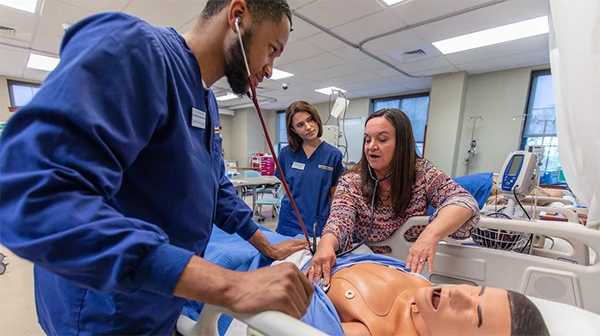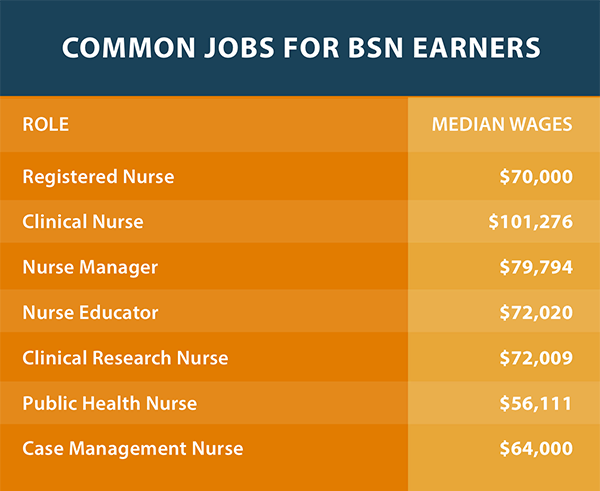
Aspiring nurses have more educational options than they may be aware of. Whereas a plethora of students take the path of four-year programs to step into their careers, they can still explore other options.
And as Dr. Albert Einstein said, “The only way to avoid making mistakes is to avoid making decisions.”
Well, you can’t avoid making decisions, but you can try exploring different options that are not mainstream. Alternative paths to certification are often less time-consuming, and affordable.
Whereas they might not provide you with a direct route to employment— we will talk about that later in the article— they do provide you with workable skills that will allow you to be a healthcare hero.
In this article, we weigh the pros and cons of both associate and bachelor’s degree programs that will enable you to become a nurse.
Disclaimer: Given that we are going to discuss associate’s degrees in this article, it is pertinent to mention upfront that you cannot go directly from receiving an associate’s degree to working as a nurse. Licensed nurses are required to have at least a BSN. This is the bachelor’s degree that you receive when you complete a nursing program at a four-year school.

Whereas this qualifier would seemingly make getting your bachelor’s degree a much more appealing option, there are reasons why an associate’s degree might be more sensible for many students. We will take a look at those in the next heading.
Why You Might Want an Associate’s Degree?
Associate’s degree curriculums are usually completed in two years or four semesters. Community colleges are a great place to get these degrees, making them an affordable and accessible way to enter the professional workforce.
Whereas it is true that there is no associate’s only path to nursing certification, there are healthcare-specific programs that you should be easily able to find at your local community college.
And the best part is that community colleges can cost as little as 1/4 the price of a conventional four-year university.
You will also be able to continue living at home, and can even find that many of the courses are designed to accommodate busy working schedules. Since many people attending community college already have jobs or families, the class schedules are often designed to reflect this.
If you are looking for an affordable and flexible, working environment, you could do a lot worse.
When you graduate, you will not begin working as a nurse, but you can have an easy time getting a job in a hospital setting. Healthcare technician might be the first job role you will land on. If you’ve ever stayed in the hospital, you probably interacted with many of these professionals. They come in with carts, check your vitals, and perform other routine tasks. You probably thought that they were nurses. Many people do.
Ok. But they aren’t nurses, are they?
They are not, nor do they receive compensation that comes anywhere near that of your average nurse’s salary. But working as a technician will get your foot in the door. Once you start working at a hospital, you may qualify for employer-sponsored tuition assistance. In other words, the hospital will pay for your degree, and you do not have to pay even a single penny.
Most tuition assistance programs only take effect after at least one full year of employment. This means that you will be delaying your bachelor’s degree for a while. However, it can be worth the gap, let us tell you how. With the money you save between tuition assistance and community college, you might find that this compromise is well worth it.
In many cases, you’ll be able to transition directly into a nursing role. The hospital where you were working almost surely needs a new RN.
This is not the quickest route to becoming a nurse, but it is one of the most affordable.
Benefits of a Bachelor’s Degree
The benefits of a bachelor’s degree basically flipped. The program will be more direct. You’ll enroll as a freshman, graduate as a senior, and collect your degree within four years.
You may get scholarships— nursing programs are well funded as a way to attract new people to a profession in desperate need of personnel.
Furthermore, You will not get employer-assisted tuition.
There are other ways to make a bachelor’s degree more affordable. You might consider going to school online. You could also take into account direct to higher programs.
These are accelerated curricula that allow you to work simultaneously on your undergraduate and graduate degrees. It might take a lot of people seven years to become a nurse practitioner, but in a direct-to-hire program, you could do it in five or six.
Only some schools have these programs and only some nursing students are eligible to participate in them. Suppose you want to begin your career with an advanced credential, that will make you eligible for high-paying jobs. This is arguably the highest streamlined way of doing it.
Students who go straight into four-year universities also have greater options to make their choice. Although a majority of students targeting only an associate’s degree will go directly to their local community college, people opting for a bachelor’s degree can select from any one of the hundreds of possible universities in the country.
Most of them wind up going somewhere in the state, but that’s beside the point.

Interesting Fact
This table shows some common jobs that you get after BSN and their average pay scale.
There are also intangible, subjective benefits that weren’t some consideration. Many people would argue that four-year universities give you a more cohesive experience. At least two different schools are where associate degree holders bounce around.
Those seeking their bachelor’s degree will often spend all semesters at the same place. This gives you a chance to enjoy your school culture and make new friends.
The experience element of college means different things to different people. For some, it helps to justify the steep price tags. Others are happy to opt out of it in order to save a few dollars.
Conclusion
All nurses eventually get their bachelor’s degree. The way you go about doing it is ultimately a subjective consideration. Taking the more meandering route of getting your associate’s degree first, will take longer but save you money. A four-year institution will streamline the process, but result in a pretty hefty student loan.
Ultimately, you just have to choose the route that makes the most sense for you.